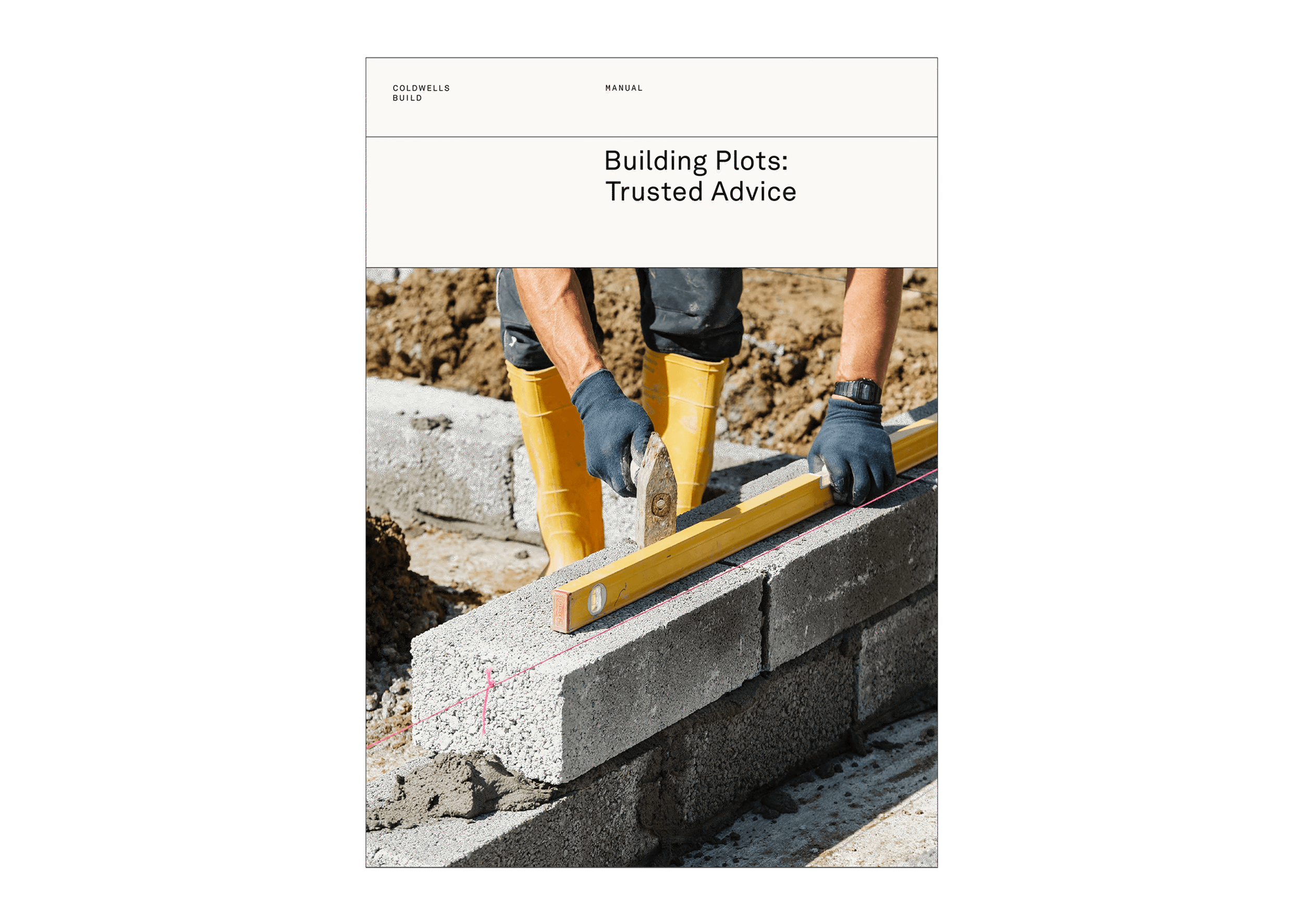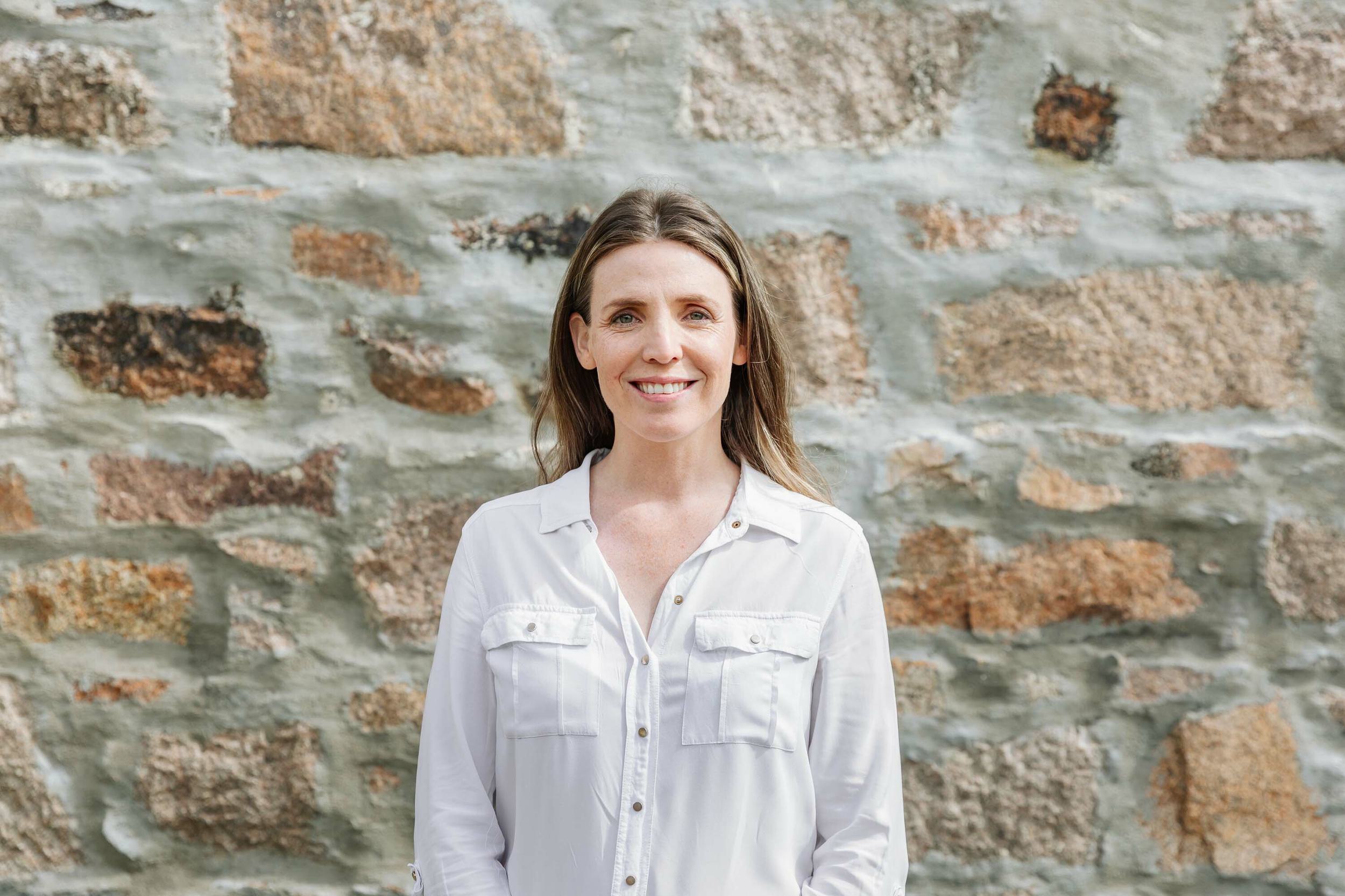
Building Plots: Trusted Advice
A self-builder's guide to finding the perfect plot, evaluating its suitability and understanding the legal considerations involved.
Download
Finding good quality, buildable land is vital for a successful self-build or custom home project. Explore all avenues with our guide to discovering building plots in Scotland.
With more people than ever wanting to build their own homes, good land can take time to track down. Many of our clients spend a year looking for their perfect site and 42% of aspiring self-builders believe plot hunting is one of the major hurdles they face.
The good news is that Scotland has a strong tradition of self-commissioned housing, especially in the highlands and islands, where hundreds of people successfully self-build each year. It means suitable land is out there; the key lies in uncovering it.
To help give you an edge, we’ve provided a list of the top eight ways you can spot areas of opportunity, along with expert advice from Chris Comfort, partner at Aberdein Considine, Scotland's largest estate agent, mortgage specialist and law firm.
We know you want to hit the ground running, but before jumping into your search, take a moment to:
Concentrate on just a few areas where you would like to put down roots. The wider the radius you draw, the more work you'll have visiting potential sites, meeting landowners and making decisions.
"Keep your search area manageable to focus your efforts effectively," says Chris. "Concentrating on specific locations saves time and energy. It will also allow you to delve deeper into potential options."
Determine your budget and how you will finance the land purchase. You might consider selling a house to free up funds, or a self-build mortgage. Scotland's Self-Build Loan Fund can help with costs towards building your house, but it's important to note it can't be used to cover the cost of buying land.
"Proper financial planning is crucial to ensure a smooth self-build process," says Chris. "Assess your budget and explore various financing avenues to secure the necessary funds."
Building plot costs vary across Scotland, so research how much land sells for in your preferred area as this may determine where you buy and the plot size you can afford.
It's worth writing down exactly what you want to quickly eliminate unsuitable sites. Is it a plot with a view? Does your dream home require a seaside location or a rural field? Are you looking for total isolation in the Highlands, or somewhere close to shops and schools? If the latter, what is the maximum distance you would be prepared to travel? Your wish-list might include burns/rivers, woodland, additional land for growing vegetables, steadings or even an old cottage to turn into a holiday rental.
If you're prepared to put in the work and consider a range of options, you'll increase your chances of finding potential building plots in Scotland.
The internet is a quick and easy way to start your search.
"Websites dedicated to self-build land listings offer a wide range of options to explore," says Chris. "These platforms provide convenience and accessibility, allowing you to browse and filter through numerous plots based on your requirements."
You can find and view plots for sale using these online sources:
In Scotland, it’s also worth checking out property portals such as:
Make sure to set up notifications or e-mail alerts with your preferred websites, so you're always up to date. The perfect piece of land can come up at any time.
Hire an estate agent, especially one with expertise in land sales for access to exclusive listings and expert guidance.
"Estate agents can provide invaluable assistance in your hunt for land," says Chris. "They possess in-depth knowledge of the local market, connections to planning experts, solicitors, and surveyors, and can offer you insights into upcoming plots of land."
Register with agents operating in your target area. Stay on their radar by either giving them a call or setting up a face-to-face meeting to make sure they understand your needs and budget.
Community trusts are non-profit organisations that own and develop land in Scotland for the benefit of the local community. They tackle housing shortfalls and repopulate rural communities by providing affordable housing and amenities such as shops, services and schools.
"Community trusts often have unique opportunities for self-builders," says Chris. "Check for community trusts in your area, as they may offer access to serviced plots specifically earmarked for self-build projects."
These types of plots offer safety in knowing that the land is suitable for residential development and already provided with utilities.
Many suitable plots are snapped up without ever going on the market, thanks to word of mouth. Talk to farmers, hairdressers, cafe owners, building contractors, architects or anyone you think might be at the centre of these conversations.
"Networking within your community can be surprisingly effective," says Chris. "Informing people about your search can lead to valuable recommendations and connections with individuals who might have information about potential plots."
If you’re a self-builder, nothing beats driving or walking around the area you're interested in to get a feel for the neighbourhood. Look for signs advertising land for sale, take plenty of pictures and jot down notes, including the address of sites that match your requirements. Use Google maps as a potential source to locate land that isn't visible from the street.
Consider the possibility of building within the garden of an existing home. If you come across a spacious garden on your travels, approach the owner and initiate a conversation.
Look for sites with a run down house that could be knocked down and rebuilt, or would be suitable for a renovation project.
"Derelict properties present an opportunity for creative transformation," says Chris. "Search the Buildings at Risk Register for Scotland to find properties with potential for adaptation, extension, and improvement to realise your dream home.”
The Scottish Vacant and Derelict Land Register is also a good resource for finding disused land. It lists sites that have or had buildings on them and that the council thinks is suitable for future development. They are sometimes referred to as brownfield sites.
You can buy parcels of land at auction, although be wary of bidding until you've thoroughly researched and checked it over. There may be potential issues with the site that could impact your investment.
"Due diligence is essential," says Chris. "Understand the terms and conditions, potential risks, and ensure you have a clear understanding of the plot's condition and any legal obligations attached."
If you're considering bidding at auction, it's worth involving a solicitor early to see whether they can identify anything that might impact your plans.
Facebook groups like Self Build Scotland or classifieds websites like Gumtree often have self-build plots for sale which aren't listed on traditional estate agency websites.
"Utilise the power of social media and classified platforms to uncover hidden gems," says Chris. "However, exercise caution and verify the credibility of vendors and intermediaries before engaging in any transactions."
Connecting with people on social media who've recently completed their own self-build or custom home project is another great way to gather information. They will likely have gone through a similar process for finding land and can share tips and advice.


Once you've found your perfect plot, it's crucial to think about the following:
Before purchasing land, check to see that it has, or is likely to secure planning permission. You don't want to be left with an expensive field you can't build on. Speak to your local council's planning authority, or visit their website. They hold all information regarding planning applications.
The planning permission of a plot will fall into one of three categories:
"If your plot already has full planning consent, you might have to build a house that sticks to the design that was already approved," says Chris.
"If you want to build a house that looks different, you'll need to make a new planning application. Discuss the situation with a planning officer at your local council – they'll be able to tell you about any requirements."
If the plot has planning permission in principle, or no planning permission at all, speak to your local planning officer. They can advise whether you're likely to get planning permission to build the type of house you want.
If you want to buy a plot without planning permission, ask the land owner to agree to an offer that's subject to you getting planning permission. That way if your application is rejected you don't have to buy the land.
If a plot previously had planning permission granted, but it's since expired, you can apply for new permission. You can make a planning application in Scotland via the ePlanning website. This service automatically transfers your application to the appropriate local planning authority.
Before buying land, consult a professional to guide you through the planning process. At Coldwells Build, we offer a free site assessment to determine your chances of obtaining planning permission. We look at the suitability of your ideas/plans for the site, including the size and style of the house, plus considerations such as access to the plot in order to undertake building works. We can then apply for and handle the planning application on your behalf.
Some land (like agricultural land or green belt land) can’t be developed due to protections imposed by the government. Your local council's planning department can provide details of a plot's classification, so you know what it can be used for.
The next step is to check its ownership. You can find this information via the Registers of Scotland. It has an ownership and title deed search, which lets you explore their registers for details of:
They also have the Land Register of Scotland, which gives information on properties and land owned in Scotland, including:
Land and Buildings Transaction Tax (LBTT) is the Scottish equivalent of stamp duty. You have to pay LBTT if you buy a plot of land in Scotland with a value above £150,000. Additional Dwelling Supplement Tax (ADS) applies only if you’re buying a ‘dwelling’. It does not apply if you are buying an empty plot, even if it has planning permission. This is provided that no construction work has started at the site.
Your solicitor will guide you on which tax rates apply to your personal situation. “It’s important to check with your solicitor at the outset to ensure you identify what tax you are due to pay” says Chris.
There may be hidden issues with the land that may not be immediately apparent. For peace of mind, you should seek independent advice and get a site appraisal or land survey. This will ensure:
After finding your ideal plot, it's necessary to engage a Scottish conveyancer/solicitor to facilitate the land purchase. Only qualified Scottish solicitors can be appointed, as the legal conveyancing process differs from England, Wales and Ireland.
"Engaging a solicitor well-versed in land sales is essential to navigate the legal complexities," says Chris. "They can guide you through the process, handle contracts, and ensure a smooth transaction."
Finding land for development requires patience and hard work, but the payoff of building your dream home is worth it. Before buying land, consult a professional builder or architect with experience in obtaining planning permission. Coldwells Build can apply for and handle a planning application on your behalf. If you would like us to assess a site for you, get in touch.

A trained communicator, Clare co-founded Coldwells Build with the aim of improving consumer experience within the construction process. Working previously as a television director and journalist, she understands more than most, about the power of detail, organisation and timing.
We’ve created 8 free-to-download guides packed with tips on budgeting, plot finding and self-building. Essential reading for anyone planning to build their home.

A self-builder's guide to finding the perfect plot, evaluating its suitability and understanding the legal considerations involved.
Download